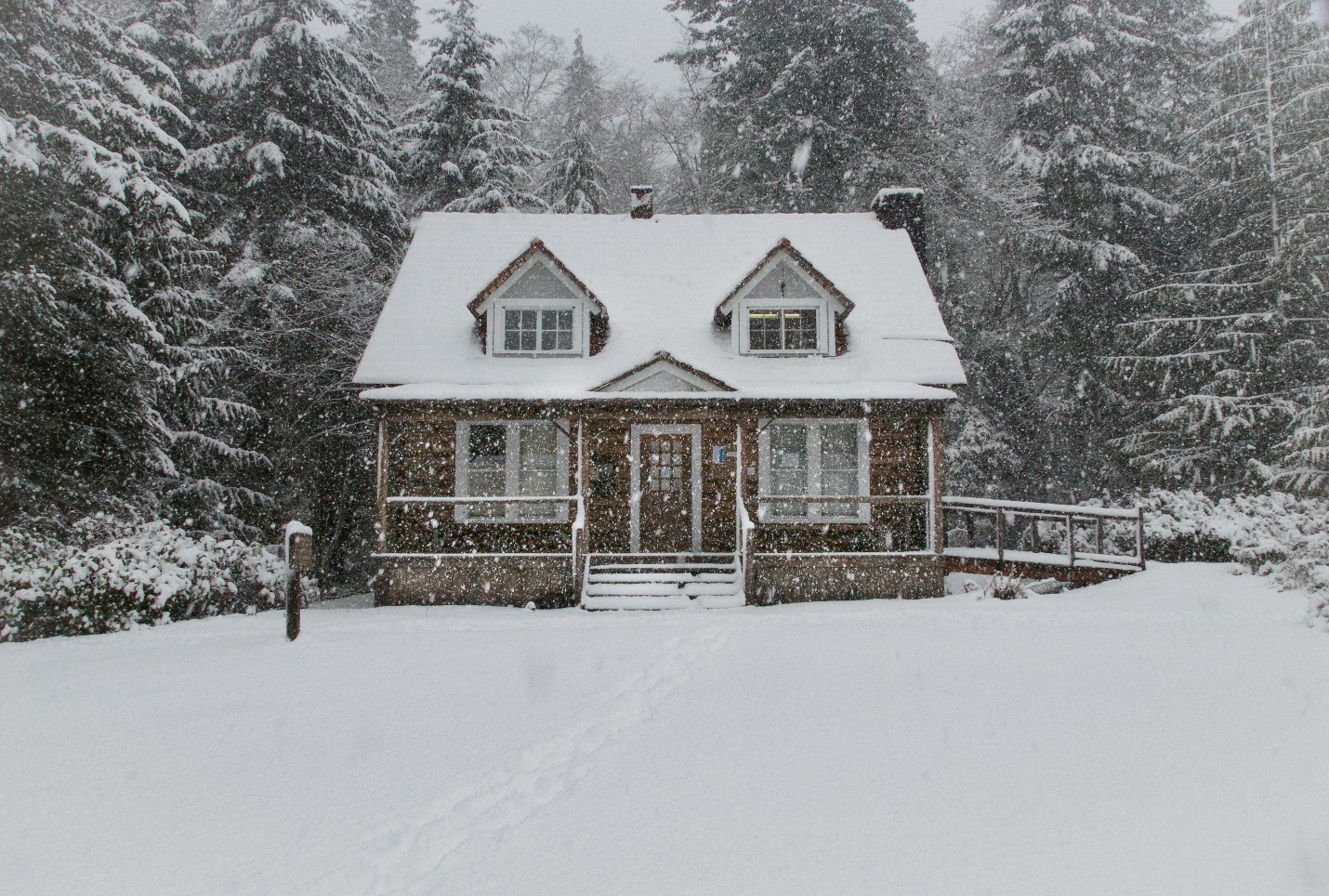Winters can get really unkind at times. Prolonged snowing spells, freezing temperatures, and bone-chilling winds can halt the everyday life routine and restrict you to your home. While staying home doesn’t have any consequences, except for a few boring weeks, winters pose a serious safety threat. If the snow continues for too long, it can damage your house. This is why it’s important to take all the necessary steps before the onset of winter. You’ve come to the right place if you want to know how to prepare your home for winter.
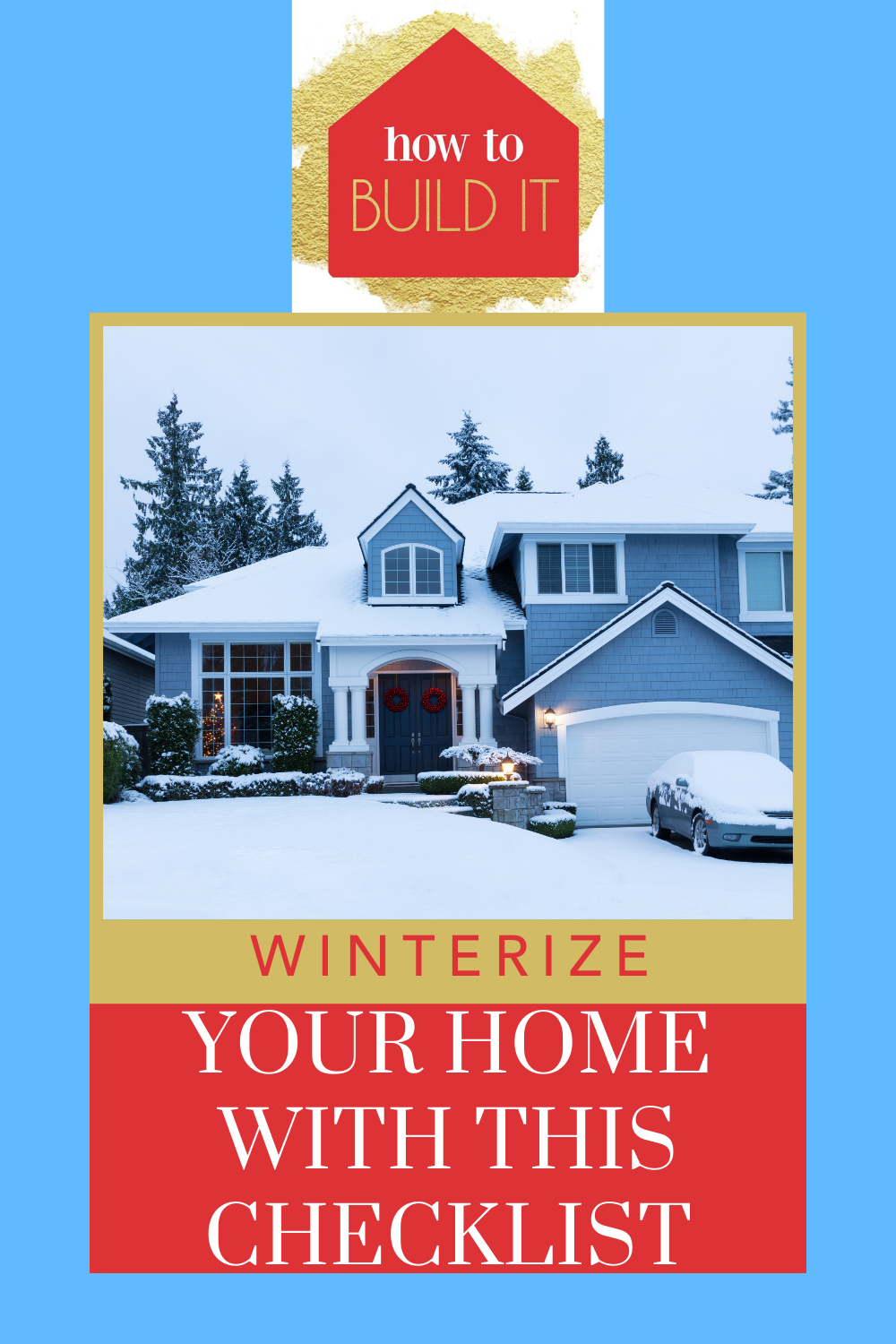

Many homeowners like to work impromptu. We’ll see when the time comes. We say – sit back, relax, and give it some thought. Is it really possible to work on preparing your home for winter when the winter has arrived in full swing? Or should you get all the maintenance work done when the weather is still friendly?
Fall is the ideal time to get down to preparing your home for winter and ensuring that your property or your family’s safety isn’t at risk.
Let’s see how to prepare your home for winter so that you can spend winters in your home without any stress or worries.
How to Prepare Your Home for Winter
Below is a complete guide with answers to your question – how to prepare your home for winter.
Make Sure Your Home’s Heating System is Working
The worst nightmare of a homeowner is to have their home’s heating system stop working when the weather is the coldest. Most HVAC systems last for an average of 12 to 15 years. If you maintain them well, HVAC systems can even last longer, or they may give way sooner if you don’t pay attention to them. If you want to prepare your home for the upcoming winter spell, hire a professional contractor to inspect your home’s HVAC system and make sure it’s in proper working order.
The professional contractor will fix anything that needs repair, change the air filter, and make sure your heating system doesn’t give way when you need it the most. You may assume that your HVAC system is working efficiently, but it’s always better to be safe than sorry. You may not be able to detect minor faults, and these are what can exacerbate and lead to your heating system shutting down.
Prepare Exterior Wood
The wood trim around the exterior windows and doors is, more than often, a regular pine board that’s not treated or coated with any sort of protective finish that may protect it from weather elements. If you don’t prepare the exterior wood components of your house to face the winters, they’ll get completely damaged. Damaged wood is an eye-sore, and worst, replacing exterior wood trims is very costly.
Go around your property and inspect all the exterior wood trims to make sure the caulk on none of them is cracking and the paint isn’t coming off. In case it is, scrape off the cracking caulk and paint and apply a fresh coat to prevent the wood from rotting during winters.
Most of the wood that’s used in your house, like the porch, window frames, and doors, is already treated. Therefore, it doesn’t get damaged due to weather elements. However, the wood trims, like we mentioned earlier, aren’t made of treated wood and are, therefore, highly prone to getting damaged. However, that doesn’t mean you should neglect the rest of the house altogether. Inspect your house thoroughly and if any wood surfaces require touch-ups, make sure to get them done well in time.
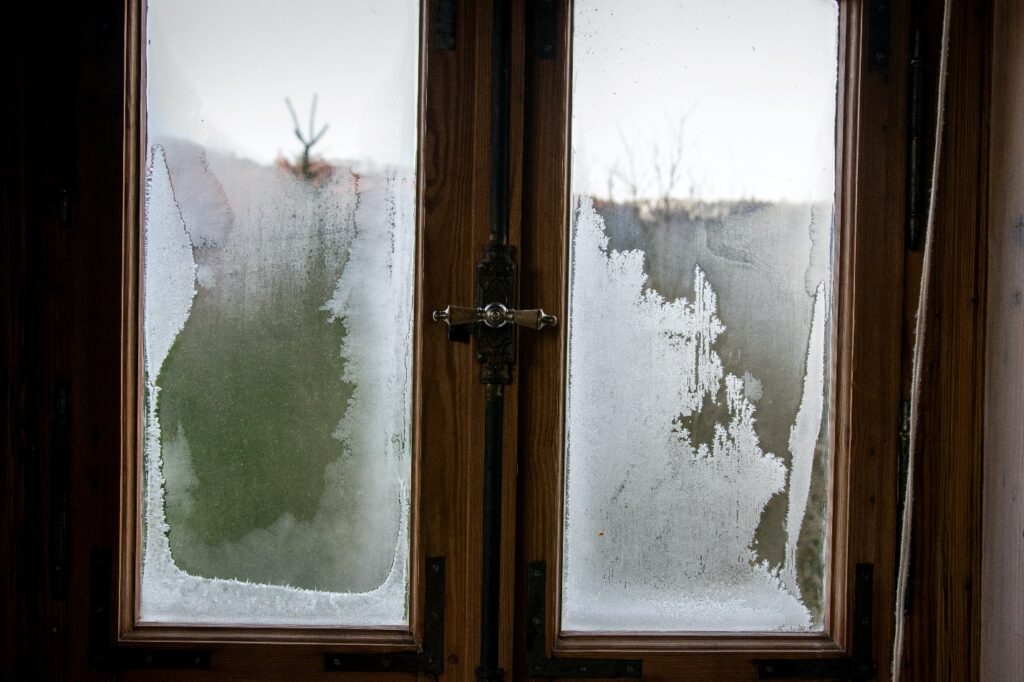

Ensure Proper Drainage
The answer to the question of how to prepare your home for winter is incomplete without addressing the importance of ensuring proper drainage. Ensuring proper drainage is an essential part of preparing your home for winter. If the drainage isn’t proper, there’ll be pools of water around your house, and that can cause foundation problems. Go around your property to see the foundation hasn’t settled at any point. You should also make sure that the direction of drainage is away from your house. That’s very important because if the water pools around your house, it’ll seep inside and cause widespread water damage. The water will freeze and thaw throughout the winter that can also cause serious structural problems for you in the future.
Another important thing that you mustn’t overlook is the rain gutters. Make sure that fallen leaves or debris don’t block them. The gutters will overflow if they aren’t clean. Overflowing water will flow over the exterior of the house instead of staying in the downspout. This can cause the deterioration of the exterior of the house and leave a massive impact on the aesthetics. Add extenders for your downspouts if you feel there’s a need for them to ensure no water pools near the foundation.
Clean Your Fireplace and the Chimney
The next thing you should do is clean your chimney. You’ll be using your fireplace around the clock so make sure it’s clean. The chimney should be clean too; otherwise, it’ll produce a lot of soot and smoke that’s harmful to health. Soot and smoke from an unclean chimney can accumulate on the surface of your furniture and walls. It’ll make your house look dirty, thereby increasing your home maintenance costs. Therefore, when preparing your home for winter, don’t forget to clean the fireplace and chimney!
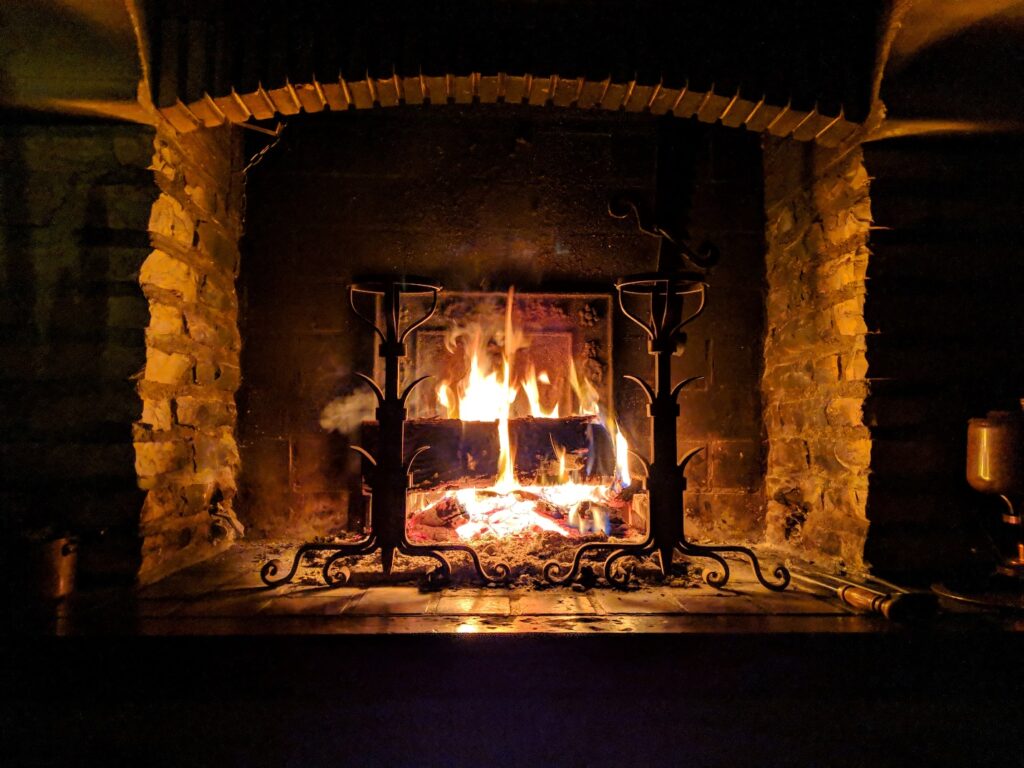

Make Sure the Smoke and Carbon Monoxide Detectors are Functional
Most people like to keep their homes closed up during the winters so that the cold air doesn’t make its way inside. They also turn on their heaters and furnaces to keep their homes comfortably warm. As much as heaters are essential to survive in freezing temperatures, they also pose a serious safety risk. When you use the furnace, you produce carbon monoxide. As a result, the level of carbon monoxide inside your home may exceed the safe levels. It can lead to breathing difficulties and other health problems. You should make sure your carbon monoxide detectors are fully functional. The risk of fires is always there, so make sure your smoke detectors are working fine.
You should immediately call a professional if you suspect that your smoke and carbon monoxide detectors aren’t working efficiently. A lot of fire accidents take place in the winter, and you should take every proactive measure that you can to prevent that from happening.
Pay Attention to Hard Surfaces
Snow can damage the concrete surfaces significantly. Your patio, driveway, and sidewalks are all made of concrete. So, how to prepare your home for winter? Hire a professional contractor and have them apply a fresh seal coat over all your hard concrete surfaces to make sure they’re well-protected during the winter months. The water from the snow will seep through the concrete slabs if there are any cracks in your concrete surface. The water will freeze and thaw, and that’ll worsen the cracks by a great deal. So make sure you get all the cracks filled and concrete surfaces treated in advance. This way, you won’t have to worry about getting expensive repairs post-winter.
You should also consider getting your Asphalt driveway treated before the onset of winter. A fresh seal coat will do the job well of protecting your Asphalt driveway from damage.
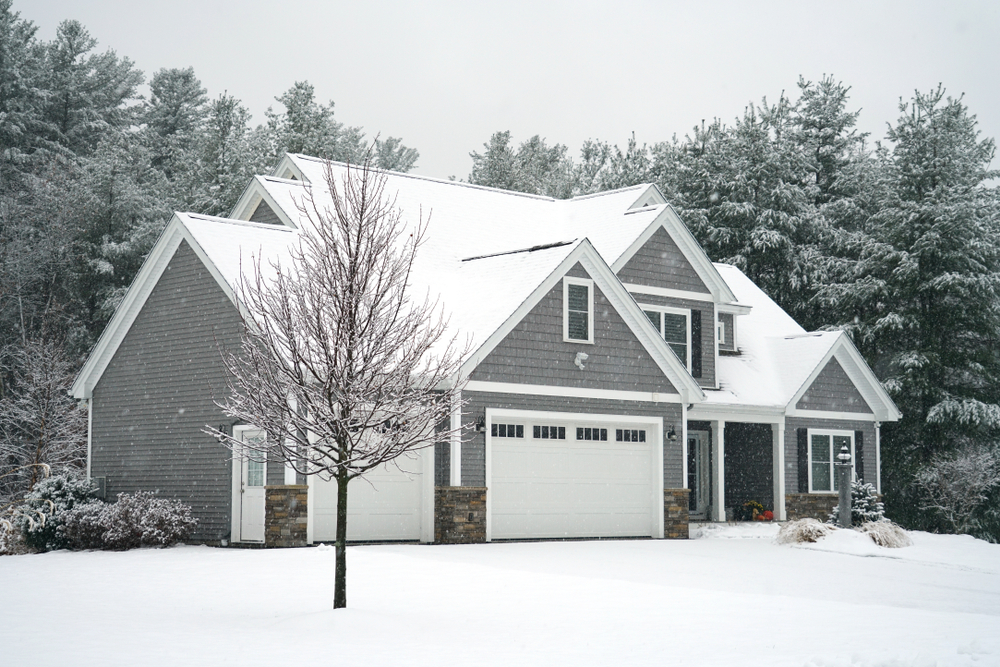

Shut Down Your Swimming Pool
You won’t be using your outdoor swimming pool during the winters, so it’s best to shut it down. The water will freeze. The pressure of frozen water can damage the concrete swimming pool structure, which is something you certainly wouldn’t want. We suggest you hire professionals for the job of shutting down your pool for the winter season. Although you can try to do it yourself, it’s always better to let the experts do the job.
Shut Down Your Sprinkler System
If you’ve installed a sprinkler system to water your garden, winters are the time when you should shut it down. The amount of water your plants need during cooler months is less, so you should shut down the sprinkler system. The water that’s already in the lines will freeze and can cause the lines to break. Therefore, opt for professional services to have the sprinkler lines blown out. By ensuring that there’s no water in the lines greatly reduces the chances of sprinkler lines breaking.
Pay Attention to Exterior Faucets
Winters are extreme in some regions, so much that any faucets that are present outdoors freeze. The freezing can spread from the faucets and spread along the pipelines inside the home. In the worst case, pipelines in the basement can even burst, leading to your basement becoming flooded. However, you can prevent that from happening. Perform basic draining. Shut off the valve that’s leading to the outside spigot. Then open the valve on the exterior spigot and allow the water to drain out completely. It’ll ensure that there’s plenty of space for any remaining water to expand, thereby preventing the bursting of pipes. Don’t open the valves to the hose until the weather becomes warmer.
Not many homeowners pay attention to outdoor faucets, but draining the pipelines is crucial when preparing your home for the upcoming winter season.
Fix Any Gaps or Cracks in the Windows
Your heating system will fail to keep your house warm if there are any cracks or gaps in the windows. Gaps between windows or cracks in the window frames can serve as an inlet for cold winter air that’ll make your house feel colder than you want. If you want to know how to prepare your home for winters, fixing the cracked or broken windows has got to be on your to-do list.
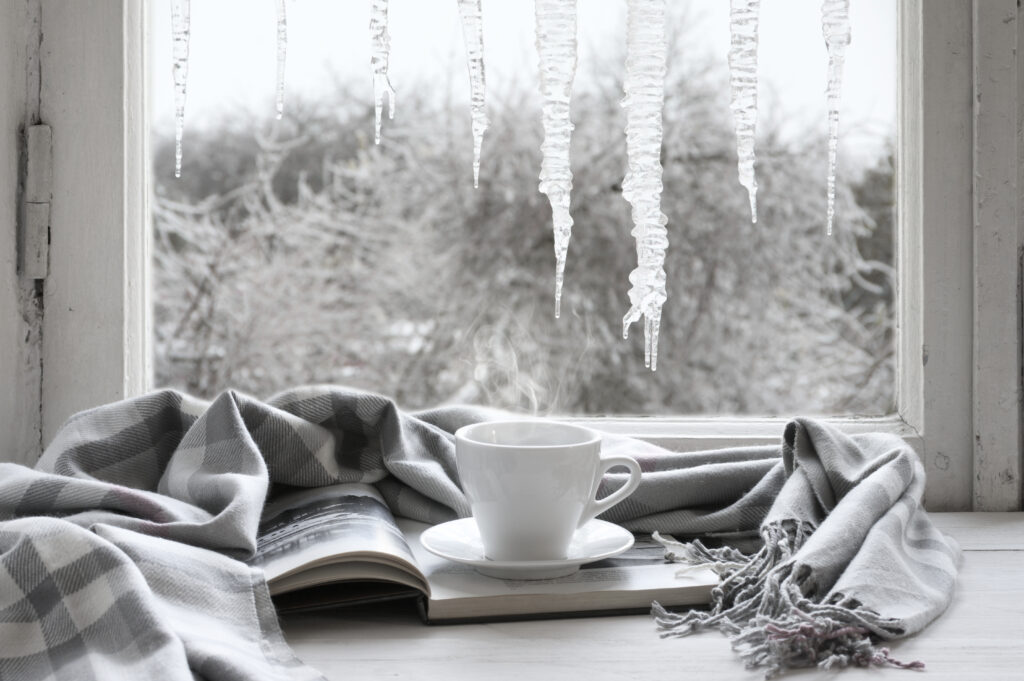

Repair Cracks or Holes in the Roof
We need not tell you what holes in the roof will mean – an inlet for rain, snow, and cold winter air. You should make sure that any cracks or holes in the roof are fixed before the winter season. Although you shouldn’t delay the damages to the roof no matter what the season is, it becomes all more important in the winter and rainy seasons. Roof repair forms an integral part of winter home preparation. If you see patches or cracks in your ceiling, you need to get these fixed right away.
Trim the Branches of Trees
Strong winter wind can cause the weaker tree branches to break and damage your roof. If you want to know how to prepare your home for winter, you need to make sure all the weak and disorderly branches have been cut off well in advance.
One of the most frequently asked questions is how to prepare your home for winter. Homeowners want to be prepared well for winter before the weather turns against their favor. They understand the consequences of going unprepared into the winters. It’s high time that you get started, now that you’ve got the answer to your question about how to prepare your home for winter. When you’re prepared for the tough weather, you can enjoy of min. It’ll also help you save some bucks. Most of the contractors charge much higher to work during the tough conditions of winters.
If you like home improvement tips, may we interest you in some DIY camping hacks as well?

